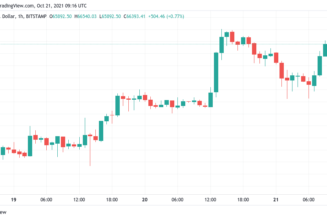
“It is not yet clear which antibody responses, if any, are protective or sustained,” the Infectious Diseases Society of America said recently, cautioning against overreliance on these tests or any “passports” or licenses they generate until a lot more is known.
Antibody tests aren’t useless. In fact, they are crucial for research. Accurate ones can help scientists track how the epidemic has spread, which populations have been most affected, what the death rate actually is — and who may be able to donate plasma as a therapy for other Covid-19 patients. Learning more about antibodies is also crucial for testing whether experimental vaccines work.
Eventually, tools that help identify who is at less risk might be useful for redesigning workplaces or figuring out which member of a family is safest navigating the wider world. Health care settings are particularly interested in using them for staffing decisions — who takes care of Covid-19 patients, and who takes care of everyone else.
But businesses or organizations that rush to use them to promote safety and recovery can get it badly wrong — especially without government guidelines on how to protect privacy or avoid discrimination of individuals or disadvantaged groups. Charo explained that guidelines would be preferable to formal regulations; they would be quicker, more flexible and less likely to get tied up for years in court.
But some big players see opportunity now. Judy Faulkner, CEO of EPIC, the giant electronic health records company, told a CNBC health summit last week that her company is partnering to develop a phone app that will say “whether you are tested and you’re clear, whether you are currently not safe, whether you have COVID right now.” It would show red for someone who has Covid-19, green for someone who’s clear and yellow if the status is unknown.
“You could go into a restaurant, show your signal to the people in the restaurant, and they’ll know you’re clear,” she added.
The travel industry is another place they could play a role. “Could there be a new public health agency coming out that requires a new passport to travel? I don’t know. But we’ll be on the forefront of all those advances,” Delta Air Lines CEO Ed Bastian said during a recent earnings call.
Some surveys, like one recently conducted by the National Alliance of Healthcare Purchaser Coalitions, found that 45 percent of businesses are considering some form of antibody tests — although it’s by no means their top priority for reopening. Businesses are more focused on ramping up diagnostic testing to identify current infections.
Widespread use outside of the science and public health world starts getting sticky. Beyond being a potential privacy nightmare, the “passports” could be dangerous. People who mistakenly think they are immune risk getting sick or infecting others. The American Medical Association has urged the Department of Health and Human Services to restrict the use of antibody tests for research purposes or by clinicians who are trained to interpret their results.









